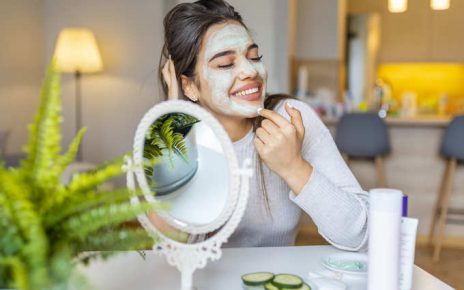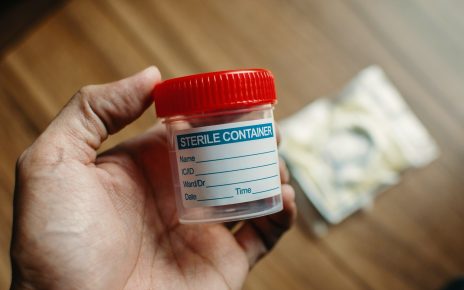The most common cold symptoms are a sore throat and cough. However, these two symptoms can be caused by other conditions as well. This is because there is no cure-all medication that will eliminate all symptoms associated with a common cold.
It’s important to note that antibiotics are not recommended for treating strep throat unless you have had a severe case of strep throat. In this case, it may be necessary to take an antibiotic to prevent complications such as scarlet fever or rheumatic fever.
In addition to antibiotics, many people also use herbal remedies in hopes of curing their common cold. One of the most popular herbal remedies used to treat strep throat is echinacea. It has been shown to be helpful in reducing the duration of your symptoms. Here’s what you need to know about using echinacea to help reduce the length of your common cold and its symptoms.
Echinacea is used primarily as an immune system booster. As mentioned previously, the majority of people who develop a strep throat do so due to a weakened immune system. Echinacea does not directly boost your immune system but rather acts as a support mechanism that enhances the body’s natural defenses against sickness.
If you are taking echinacea to combat strep throat, then you should limit your consumption to one teaspoon three times per day. This dosage is equivalent to two echinacea capsules. You should only take this herb if you are suffering from mild symptoms; otherwise, you should refrain from using any type of herbal remedy whatsoever.

Here we will discuss about strep throat treatment in brief and if anyone wants to gather knowledge regarding this treatment and disease then it is very helpful for them if they read it once. We know that people can acknowledge regarding it from the internet but reading this article in brief will not waste their much time as they don’t have to search anything.
How to Take echinacea
The best way to consume echinacea is to make a tea out of several dried petals. To prepare the tea, place five dried petals into a cup. Fill the cup with boiling water. Let the mixture steep for about ten minutes. Then strain the mixture through cheesecloth and drink the liquid. If you want to add some flavor to your tea, try adding honey or lemon juice.
It’s important to note that echinacea is known to cause stomach upset in some individuals. Therefore, you should avoid drinking more than one cup per day. Also, pregnant women must not take echinacea. Children under the age of six months shouldn’t take echinacea either; however, older children and adults can safely consume it.
Antibiotic Alternative #1: Zinc
Zinc deficiency is responsible for many illnesses including strep throat. The deficiency occurs when your body cannot absorb zinc properly. To address this issue, you should supplement your diet with zinc. The easiest way to get the recommended amount of zinc is by eating foods containing naturally occurring zinc. These include oysters, pumpkin seeds, sesame seeds, and beef liver.
You can also get zinc supplements in liquid form or tablets. For example, Zicam products contain both zinc and echinacea. They are designed to relieve minor earaches and nasal congestion. There is also a product called Zyrtec that contains both echinacea and pseudoephedrine. The combination of these two ingredients relieves sneezing, coughing, and runny nose.
Antibiotic Alternative #2: Vitamin C
Vitamin C is another nutrient that is essential for preventing and treating strep throat. Vitamin C helps your body build resistance to viruses and bacteria. When taken daily, vitamin C can keep you healthy for up to a year.
To get enough vitamin C, you should eat fresh fruits and vegetables every day. Citrus fruits like oranges, lemons, grapefruit, and tangerines are excellent sources. Other good choices include tomatoes, broccoli, bell peppers, strawberries, kiwi fruit, and papaya.

Additionally, you can increase your intake of vitamin C by consuming supplemental pills. Taking 200 mg of vitamin C twice per day is sufficient to keep you healthy. However, if you are prone to low blood sugar, you might want to take 400 mg once per day instead.
Antibiotic Alternative #3: Ginger
Ginger has long been considered a powerful anti inflammatory food. Inflammation is a condition where the body responds to infection with a healing agent. This agent usually causes swelling, redness, pain, and warmth around the site of the injury. Ginger has been used for centuries as an anti-inflammatory spice. It reduces the severity of the symptoms of a cold while eliminating the pain.
One thing to note though is that ginger should be avoided during pregnancy. Pregnant women who suffer from morning sickness should also avoid ginger. However, pregnant women who experience heartburn should consume ginger without hesitation.
A study conducted at Harvard University found that ginger reduced the duration of the common cold by approximately one day. Another study published in the British Journal of Clinical Pharmacology revealed that ginger shortened the duration of a cold by half. There was no significant difference between the effects of ginger versus those of ibuprofen.
For best results, you should take two tablespoons of freshly grated ginger root before bedtime each night. Alternatively, you can purchase a powdered form of ginger and mix it with hot water before consuming it. It’s important to remember that ginger is not intended to replace conventional treatments for strep throat.
Other Effective Remedies for Strep Throat
There are numerous herbs and plants that are believed to help treat strep throat. Some of them include garlic, dandelion leaf, licorice root, nettle leaf, and lemon balm.
Garlic is an antiseptic that has been known to kill harmful organisms. Dandelion leaves have been used to treat respiratory infections since ancient times. Licorice root is a potent antiviral agent. The active ingredient in licorice is glycyrrhizin, which kills viruses. Nettle leaf is an antioxidant plant that stimulates the production of white blood cells. Lemon balm is effective against bacterial infections.
If you would like to learn more about how to prevent and treat strep throat, check out our article on home remedies for a sore throat.
Home remedies for strep throat are extremely useful for treating common cold symptoms. However, they should never be relied upon as the sole treatment method. If you decide to use a home remedy, always consult a doctor first. Never rely on home remedies alone; you could end up harming yourself or getting sicker.




